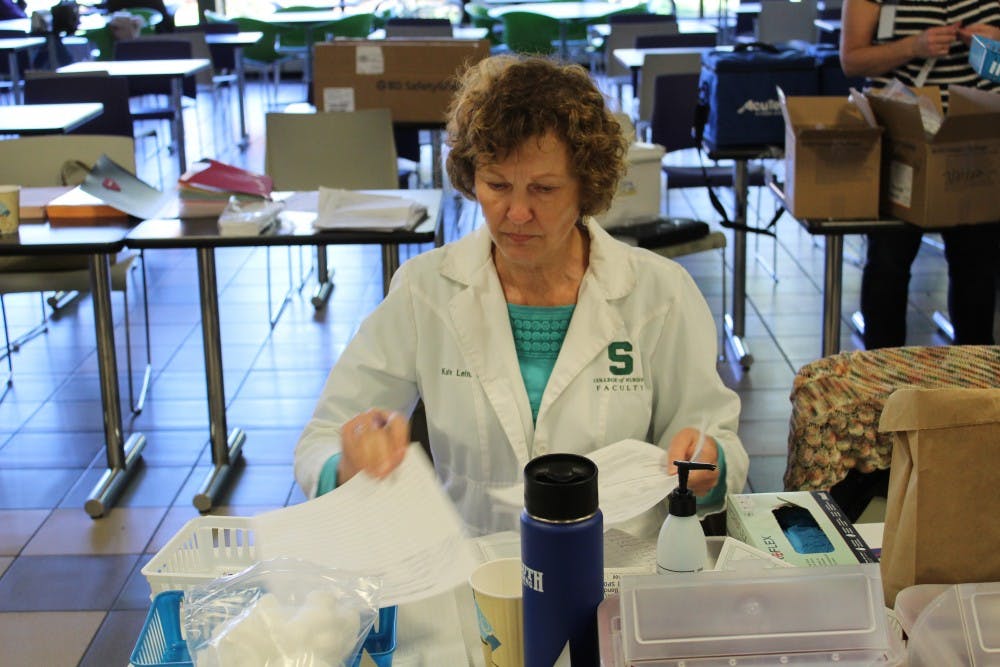An outbreak of preventable diseases has spread across the country, including here in Michigan.
The Michigan Department of Health and Human Services, or MDHHS, along with the Oakland County Health Division has reported eight cases of measles since March 13.
There are 22 total active cases of measles in the state, with infected individuals aged from 11 to 63, according to MDHHS.
“Unvaccinated individuals need to get vaccinated. If you do not have a record of two measles (MMR) vaccines, unsure if you have been vaccinated or unsure if you have had measles in the past, contact your healthcare provider,” Leigh-Anne Stafford, the health officer for Oakland County, said in a press release.
The Oakland County Health Division keeps an updated list of exposure locations here. There are currently 89 of them.
Measles was considered to be eliminated in the U.S. since 2000. The Centers for Disease Control recommended two doses of the MMR vaccine following an outbreak in 1989. In the late 2000s, measles became more prevalent following an increase in unvaccinated populations, with over 600 cases reported in 2014.
Dr. Rhonda Conner-Warren, an assistant professor of health programs in the College of Nursing at MSU, is also a pediatric nurse practitioner and is involved in vaccination efforts with the Ingham County Department of Health.
Health officials, including Conner-Warren, believe the illness is frequently picked up during travel abroad.
“There is an increase in the number of people not being immunized in Michigan,” Conner-Warren said. “When you go to areas of the world where people have known, active cases, and a person is exposed who has no immunity, (they have) a two-week window” until they know whether or not they are carrying the disease.
Conner-Warren said there are millions of people who cannot be vaccinated or who are immuno-compromised or -suppressed, including those with HIV and AIDS. They are most at risk of contracting diseases like measles from voluntarily unvaccinated Americans, according to a 2015 study from the American Journal of Bioethics.
“People don’t go around saying, ‘You know, I’m on high-dose steroids,’ or, ‘I’m on immunosuppressive therapy,’ so you don’t know. You don’t know who’s had a kidney transplant or a lung transplant or a heart transplant,” she said.
While medical professionals warn people with conditions like those listed by Conner-Warren to be cautious about going out in public, they could be exposed at any time. With an outbreak of measles — a highly contagious disease that can live in the air for up to two hours — this can make life even more difficult.
Warren said exposure to or catching diseases like measles when a person is unvaccinated does not guarantee that they will develop an immunity. Only in rare cases, such as undergoing a stem-cell transplant or while on chemotherapy, should a child not be vaccinated, she said.
“I believe everyone has a responsibility (to be vaccinated) towards each other, because we’re not on an island by ourselves,” Conner-Warren said.
The Oakland County Health Division and MDHHS have a few suggestions for concerned Michiganders, according to a press release.
“March and April are busy months for Spring Break vacations. Get vaccinated before you travel,” Stafford said. “Currently, 15 states have confirmed cases that are linked to travelers who brought measles back from other countries where large outbreaks are occurring.”
Symptoms of measles include:
- High fever that may spike to over 104˚F
- Cough
- Runny nose
- Red, watery eyes (conjunctivitis)
- Tiny white spots on the inner cheeks, gums and roof of the mouth (Koplik spots) two to three days after symptoms begin
- A rash that is red, raised and blotchy; usually starts on the face and spreads to trunk, arms and legs three to five days after symptoms begin
Support student media!
Please consider donating to The State News and help fund the future of journalism.
Discussion
Share and discuss “Health official: Vaccines a "responsibility" as measles hits Michigan” on social media.







